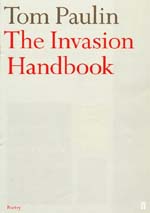World of Books
The Fifth Annual Texas Book Festival
By Tim Walker, Fri., Nov. 10, 2000

Stanley Crouch
It is not surprising that after publishing three collections of essays in a dozen years, Stanley Crouch's spacious, long-awaited first novel Don't the Moon Look Lonesome showcases his erudition alongside his fascination with the way real people live. He is a high-powered intellectual who operates in rarefied circles (he is a contributing editor of The New Republic and a frequent guest on The Charlie Rose Show), but at the same time an enemy of stuffiness and sentimentality. He is a student of the everyday world. Both in his writing and his conversation, he impresses you as a fresh thinker who refuses to act like an intellectual "ought" to act.Crouch, whose mother and sister have both lived in Houston and who has roots across the South, defends the length of his novel (criticized by, ahem, a certain reviewer in this space earlier this year) by calling it a "Melville update." The book's meandering structure is intended as an exploration of "digressive technique" such as that used in Moby-Dick. Crouch wants the reader to think about why the story veers into discussions of cetology (Melville) or the architectural history of Grand Central Station (Crouch).
The novel traces the years-long relationship of Carla, a white blues singer raised in South Dakota, with Maxwell, a black tenor saxophonist from Houston. Crouch says that he particularly wanted to treat the realities of spirituality in his characters' lives while "not condescending to religion" -- a cultural bias he finds all too common in intellectuals. Crouch says he wrote the book in part because "I wanted to go as far as possible beyond everything I know about that's been written about race and class ... in the past few decades." Too much writing in this vein, he says, has tended to be "too simpleminded," failing to get at "the complexity of the individual."

Don't the Moon Look Lonesome easily fends off any charges of simplemindedness. It addresses myriad topics ranging across spectra of class, race, geography, and artistic and intellectual endeavor. Crouch emphasizes that he wanted the book to highlight the ways in which differences between people -- of whatever race or class -- can stem from their regional influences. In other words, a white middle-class woman from the Midwest doesn't equate to a white middle-class woman from the South or one from the Northwest, and so on.
Houston was a natural setting for Crouch to showcase thoughts on religion, suburbia, and consumerism. During his trips to Houston to visit relatives, "a lot of these things stuck with me -- the Fifth Ward, and this and that." Crouch's language is peppered with colloquialisms along the lines of "and this and that." Indeed, his essays are so bracing in part because of the juxtaposition of such natural turns of phrase with the loftiest of ideas and ideals. It is hard to find a profile of Crouch that doesn't refer to him as an "iconoclast," and he seems to relish shaking up people's preconceptions, both through rigorous intellectual examination and through swinging, rhythmic, jazz-inflected patterns of language. (One gets the impression in talking to Crouch that he has read everything; considering his eminence as a writer on jazz, he may have listened to everything, too.)
In the introduction to his second collection of essays, The All-American Skin Game, Crouch says that when he's considering a political or cultural idea, he "doesn't care whether the cow comes from the right, the middle, or the left of the pasture; I'm concerned with whether or not the milk is sour." Besides being another example of his use of vigorous prose stripped of pretense, this comment is a fair expression of the willingness he has shown to weave together seemingly disparate themes into a compelling cultural outlook.
His readers can expect more of this from his second novel -- titled Seen -- now in the works. It is the story of a black documentary filmmaker making a movie about an aging fashion model whose grandfather was a famous painter. The filmmaker films the model as she travels to museums in various capitals of Europe to view her grandfather's body of work. This story again ties in themes of race and class as it also explores elements of the humanist Enlightenment tradition that Crouch has so often addressed in his essays.
Crouch is a fabulous talker and holder of opinions, with a mind at once kaleidoscopic and deep. Whether in print or in conversation, his juxtapositions of rigorous thoughts and freewheeling language make what he says impossible to pigeonhole and impossible to ignore.
Stanley Crouch will be a panelist on the "The Last Word" panel on Sunday, Nov. 12, at 3:15pm in the House Chamber. He will also give a reading on Saturday, Nov. 11, from 12:45-1:30pm in the Senate Chamber








